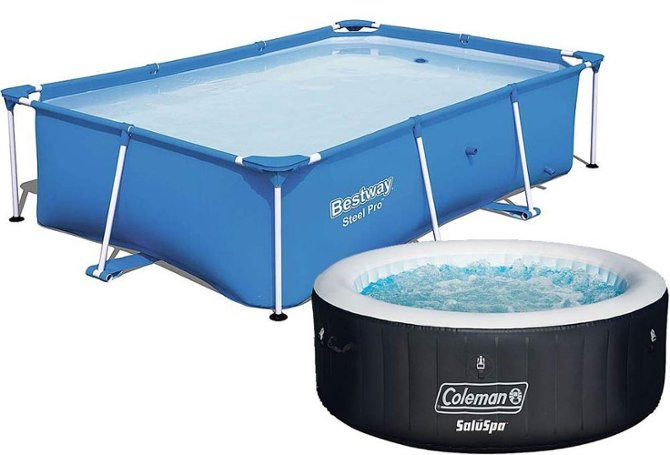10 Common Swimming Pool Myths: Busted!

carousel
Learn the truth about what's happening in and around your pool
1. The cleaner the water, the cleaner it is
Although clear water is always a good sign, it doesn’t always ensure that water is safe for swimming. The green tint found in some swimming pools comes from algae slime on the pool’s bottom or sides. Murky water could show a chemical imbalance in your swimming pool, which may be the result of algae or bacterial growth.
While clear water means that no visible algae is growing in your pool, there could still be dangerous microbes and other contaminants in present. If the water is clear but still has a strange taste or smell, there could be microscopic organisms causing a problem. Remember to test your pool water regularly to make sure it’s truly clean and safe for swimming.
2. Heavy chemical odor means clean water or too much chlorine
3. Since pool water is disinfected, it can't make you sick
4. Chlorine from swimming pools alters hair color
5. Wait for 30 to 60 minutes after meals before swimming
6. Chlorine burns your eyes when you open them underwater
7. If you pee in the pool, water turns blue
8. You can only enjoy a swim in good weather
Most people enjoy swimming in warm and sunny weather. Although poor weather may limit pool time, it doesn’t have to. You no longer need to put away your pool floats and toys at the end of summer. With the following gear, you can extend your swimming season:
- Solar cover or solar ring to keep water warm and seal in heat
- Solar heater to enjoy warm water in cooler weather
- Pool heat pumps to regulate water temperatures
9. Heating a pool is expensive
10. Rainwater has no effect on pool chemistry
Rainwater directly affects the chemistry of your pool water. Since it alters the pool’s pH, rainwater causes changes in alkalinity and acidity. This may heavily influence some chemicals, such as chlorine, or lead to microbial growth.
Hopefully, this article has busted some of the common myths surrounding swimming pools and their water. Now, grab all the necessary pool accessories and enjoy your swimming pool all summer long.